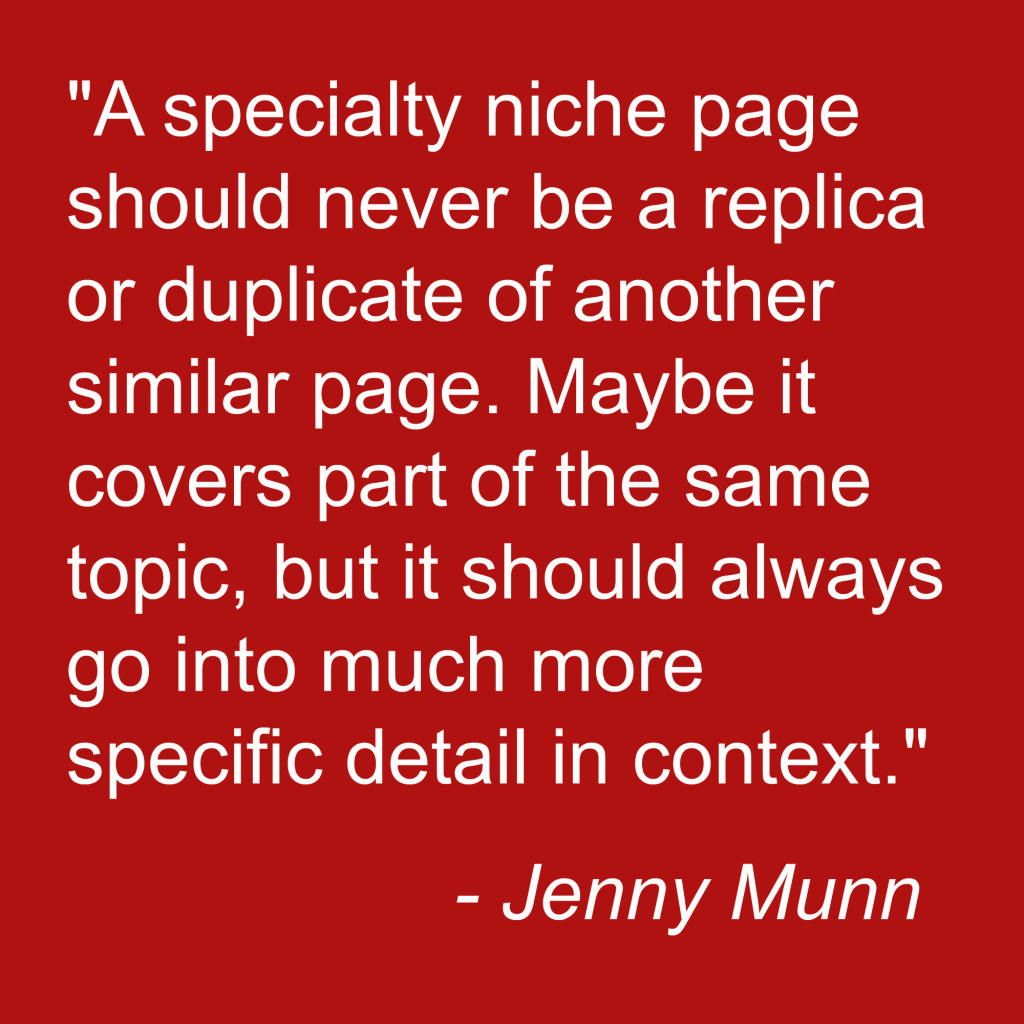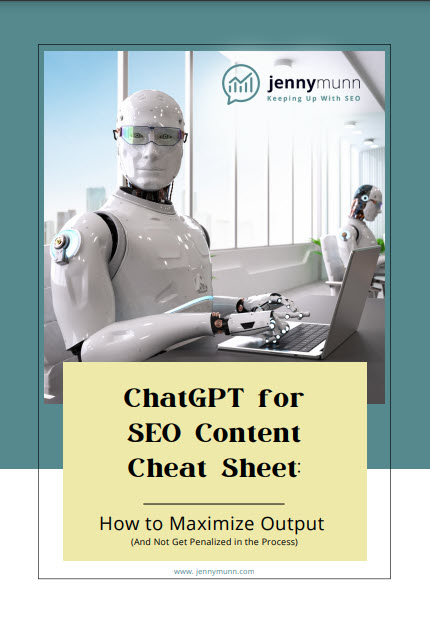 Before I was an SEO Consultant, I got my start as a website and SEO copywriter. A large chunk of my assignments was writing website sales-oriented “niche pages.” That is, keyword-driven pages intended to rank for that keyword and that would drive more leads. (Some people call these SEO landing pages, SEO pages or a host of other names.)
Before I was an SEO Consultant, I got my start as a website and SEO copywriter. A large chunk of my assignments was writing website sales-oriented “niche pages.” That is, keyword-driven pages intended to rank for that keyword and that would drive more leads. (Some people call these SEO landing pages, SEO pages or a host of other names.)
Disclaimer – these were not spammy, low-quality pages with the keyword stuffed in. I genuinely did a lot of research to put these together, all with the intent of understanding what the pain points of the target market were, and how my client’s services or products filled that pain point. The beauty of these pages was that I could target a specific family of keywords so the page would have a very good shot of ranking well.
SEO Landing Pages and Their Fall Out
A few years ago, writing these keyword-driven pages (high quality only that made sense to the business) was a good strategy because you could really optimize with a highly focused subject matter topic and “blow it out of the water” with good on-page elements.
But after awhile, like most SEO tactics, niche pages were abused and misused, got low quality and spammy (not to mention duplicate), and as a result, became not nearly as effective as they once were (and in some cases were the target of Google penalties). Websites became cluttered with useless pages that contained very similar information, all with the target keyword swapped out. In local SEO, identical geo-targeted location pages with city names swapped out became prevalent.
Needless to say, this tactic fell out of popularity, and for good reason.
SEO Niche Page Guidelines
However, there are still a few times when I will enthusiastically and wholeheartedly recommend that a niche website page be created.
Here are some guidelines I run through with my clients on when and when not to create a niche page:
- Your goal isn’t to “hide” that page; you are proud of making it prominent on your website and can find a parent page for it (or several pages) that will link out to it
- It warrants at least 350 words-500 words to go into more content depth
- This product or service is truly a specialty of yours and you deserve to “own that” phrase
- You can justify internal linking (linking to this niche page from blog posts and other website pages)
- You can see yourself promoting it on social media, and eventually getting links from other websites to this page
- It is NOT a replica/duplicate of another similar page – maybe it covers part of the same topic, but it goes into much more specific detail in context
- Do I need to say “keep it high quality” again? Perhaps so. This page should be very high quality with unique, valuable, copy. As well as – it should make good common sense for the business
- The keyword should be very lead-gen oriented. If it’s more informational, put it in an article, blog post, or video, not a true “sales” website page
- You won’t get into a crazed SEO landing page creation frenzy which could dilute your efforts and bring the quality of your site down (not to mention the user experience)
At the end of the day, just give it a try. You’re not married to this page – but you’ll never know for sure unless you give it a shot and tinker with some experimentation. And as always, give the page some time to gain momentum, and then check in analytics to see how it’s working out and what tweaking you might need to do to give it more visibility.
Jenny Munn
Latest posts by Jenny Munn (see all)
- Four 2024 SEO Planning Tips for World Domination - November 16, 2023
- SEO Planning Tip: Why You Need a CYA Clause - November 3, 2023
- How Long Does SEO Take to Show Results? (Updated for 2023) - August 9, 2023


